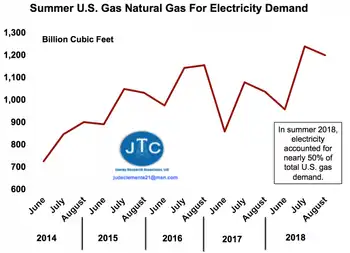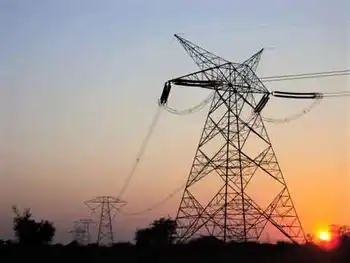House committee clears nuclear power bill
By Associated Press
Protective Relay Training - Basic
Our customized live online or in‑person group training can be delivered to your staff at your location.

- Live Online
- 12 hours Instructor-led
- Group Training Available
The House Energy and Utility Regulation Committee voted 17-4 for the Senate-passed measure as Corporation Commissioner Dana Murphy and representatives of the state's two largest electrical utilities, Public Service Company of Oklahoma and Oklahoma Gas and Electric Co., monitored the bill's progress.
Murphy said she wants to be sure that lawmakers give the bill "thoughtful consideration" and that the commission, which regulates utility rates and the oil and gas industry, is involved in its development.
The measure's author, Rep. Scott Martin, R-Norman, has said it is intended to offer incentives to power generators to consider building a nuclear plant, which would cost between $5 and $10 billion and take a decade to build. They include allowing utilities to pass on some of the cost of the plant to ratepayers during construction.
"Other states have utilized it as a form of incentive," Martin said.
But Rep. Eric Proctor, D-Tulsa, questioned whether the measure would protect electricity users from burdensome rate hikes. The AARP, which publicly opposes the plan, has said consumer rate increases of 20 percent to 40 percent are possible based on an analysis of similar legislation in other states.
Proctor said a utility company could spend $100 million just studying a nuclear plant before deciding not to build one. "And our ratepayers would be left on the hook for that, and this thing would never be built," he said.
"We've got to strike some kind of balance in there," Martin said, adding that he also does not want to see rates increase for a plant that is not built. "Those are protections we're going to try to put in the bill."
The plan comes 26 years after PSO proposed the Black Fox nuclear power plant near Inola in eastern Oklahoma. The company abandoned the project after a nine-year battle with opponents.
Martin said the measure, virtually identical to a bill already passed by the House, is a work-in-progress and that the final version will likely be worked out in a House-Senate conference committee in May.
Among other things, the measure establishes a review process for the Corporation Commission to consider nuclear power proposals and creates a task force to consider tax changes that would encourage construction of a plant in Oklahoma.
If the measure becomes law, an electric utility would be able to file an application with the commission seeking a determination of need to build a nuclear power plant. If approved, the plant's costs would be subject to cost recovery rules similar to existing rules for other power plant projects.
Supporters maintain that nuclear power is safe, reliable and inexpensive. Proponents have said that other alternative energy sources alone, like solar, wind and geothermal energy, will not be enough to meet future power needs as the state and nation reduce their reliance on foreign oil.
Currently, Oklahoma does not have a nuclear plant and there are no plans for one. There are 104 nuclear plants in the U.S in 34 states including Arkansas, Kansas, Texas and Missouri.
According to the Nuclear Energy Institute, there are 17 applications for 26 nuclear plants currently under consideration, including several in Texas.











